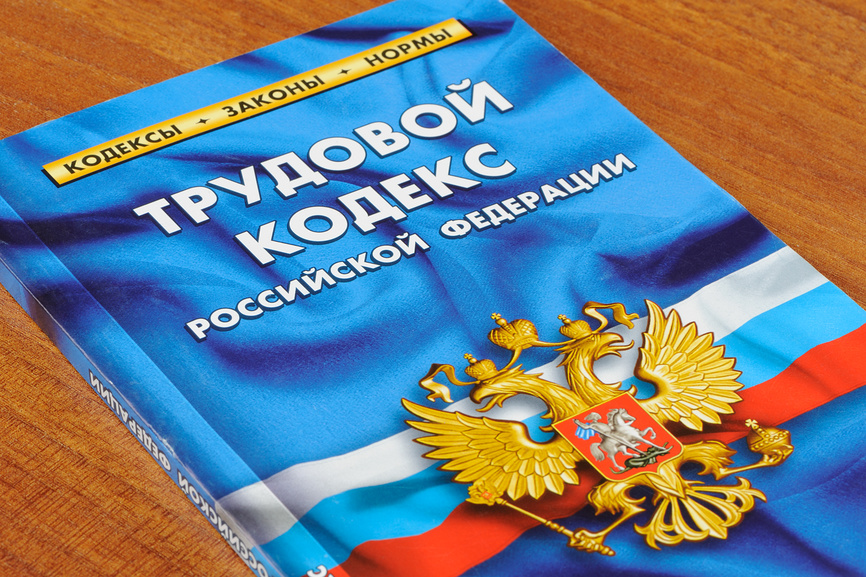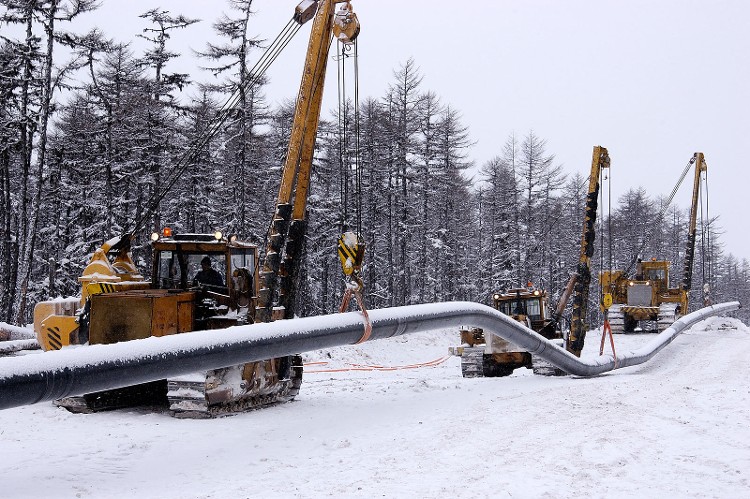The issues of resolving labor relations are topical for millions of working people in our country. Employees do not always know their rights and are able to defend them correctly. Therefore, it is very important to be interested in the laws governing labor relations between a manager and a subordinate.
In this article we will talk about the duration of an additional vacation. What categories of workers have the right to take advantage of this? What is the duration of the annual extra leave? Is it possible to calculate it in advance? Read these and other nuances further.
But first, let's find out the fixed duration of the main and additional holidays.
The minimum period for rest
According to Russian law, every employee of any enterprise has the right to an annual fixed vacation equal to 28 calendar days (or four weeks).
Does the law specify the duration of additional leave? In short, no. However, according to the Labor Code of our country, the state has established the minimum duration of additional paid leave. For each category of preferential professions, it is different.
With a minimum duration of annual additional leave we will familiarize with below. Now let's find out what types of vacations are regulated by the Labor Code.
What is an extended vacation
Many workers confuse concepts such as extended and additional annual leave. The duration of each of them is different, and they differ from each other.
The extended vacation granted annually to certain categories of workers is fixed. Here are the benefits groups for workers:
- Persons with disabilities of any profile (the total number of paid holidays is thirty calendar days).
- Educators and teachers (42 days or 56 days respectively).
- Workers who are not eighteen years old (31 days).
- Civil or municipal employees (thirty days).
- Rescuers (in this situation, extended leave is calculated based on the length of service of a particular employee and can vary between thirty and forty days).
- Employees of courts and prosecutors (may also vary between 30 and 48 days).
- Workers with a scientific degree (36 or 48 days).
- Workers in the field of chemical weapons (49 or 56 days, it all depends on where the company is located) and some other categories.
Who is entitled to annual additional paid leave, the duration of which is so interesting for many of our compatriots?
What the law says
The labor code of our country (namely, the first part of the 116th article) defines the grounds according to which a person is granted annual additional paid leave (the duration of which will be indicated below).

What are these preferential circumstances? First of all, this:
- Work in harmful and even dangerous conditions.
- Labor of a special nature.
- Work that involves irregular working hours.
- Work in certain areas (the Far North and areas equivalent to it).
Of course, this list is incomplete, since the legislation provides for the provision of additional preferential leave to other categories of employees. However, the conditions mentioned above are considered the most common and demanded among the inhabitants of our homeland.
At the discretion of the employer
According to the second part of the article of the Labor Code of the Russian Federation considered above, enterprises and organizations have the right to independently assign additional leave to their employees (the duration of which is also established by the head). This is provided in case the legislation does not establish an additional weekend for certain categories of employees, and the employer wishes to provide them with a paid weekend.

Such circumstances are recorded in a collective agreement, as well as other regulatory acts of a local organization. Thanks to these documents, the employee enjoys special privileges that are not considered by Russian law.
On the other hand, although it is within the competence of the head of the enterprise to provide his employees with additional benefits (for example, paid leave), he is not entitled to cancel the local regulations of the Labor Code with local documents regarding their benefits provided by law.
However, the question remains open: what is the duration of the additional leave for workers mentioned in the Labor Code of our Motherland? Let's find out more.
Harmful working conditions
What professions belong to this preferential category? First of all, these are specialties that are directly related to work in mines, which are directly underground or open work in quarries or opencast mines. It is not necessary that enterprises of this kind apply only to the coal industry. Workers from the shale and mining industries and some other sectors of the national economy may also be given extra days off. This applies to those who are directly involved in the production of military equipment (defensive or aviation) and the smelting of metal, as well as its processing.

Also, additional leave is received by specialists working with chemical or biological substances that can cause irreparable harm to their health. This applies to specialists working in the industry for the extraction or processing of oil, gas or peat; to health workers and laboratory assistants involved in biomaterial collection, in contact with HIV-infected patients, patients with tuberculosis, or serving mentally ill people.
In addition, workers who take part in eliminating radiation contamination or who work in production with increased levels of radiation receive additional leave.
Hazardous conditions and rest period
What is the minimum duration of additional leave for the above categories of workers? Specialists working in conditions of increased danger (in mines, metallurgical plants and so on) receive additional days off to the main annual paid leave in the amount of 4-24 calendar days. It all depends on the degree of danger of working conditions, as well as how often a person in his workplace is in such circumstances.
If the employee, in the course of his work, comes in direct contact with harmful chemical or biological substances, then he is provided with a state vacation with additional grace days in the amount of 6-36 working days. That is, vacation in such cases is provided according to a schedule of not a five-day working week, but a six-day one. Accordingly, the main vacation of such an employee will be replenished with an additional grace period of 7 to 42 calendar days.
If we are talking about liquidators of accidents at chemical plants, then their additional leave will be seven or fourteen calendar days. This also applies to the liquidators of the Chernobyl accident.
The special nature of labor
What professions belong to this specific category of beneficiaries entitled to additional paid leave? First of all, these are employees performing their duties in various state institutions. This category includes employees of courts, prosecutor's offices and penitentiary institutions, as well as those people who, due to their competence, possess especially important information or even state secrets.

Special conditions and vacation period
How to determine how many extra days off a person can take whose employment is closely related to the specialties mentioned above?
It is important to know that the provision of additional rest directly depends on the number of years continuously worked in a certain area. In some cases, this privilege is called annual extra length of service. The duration of the extra weekend depends on the length of service and the type of human activity.
For example, if an employee works in the police, then he has the right to ask for additional days to the main vacation in the amount of 72 hours for an experience of five to ten years, five days for an experience of ten to fifteen years, ten days - the continuous period must be 15- 25 years, fifteen days - twenty years of experience and above.
What is the duration of additional paid leave for seniority of civil servants working in state or municipal structures? In this case, one year of experience can be equal to 24 hours of extra rest. It is clear that most often the days off depend not only on the number of continuously worked years, but also on the position of the employee.
What is the length of additional seniority leave for employees in the Ministry of Emergency Situations? Extended vaccinations are possible with a length of service of five to ten years (72 hours). If an employee of the Ministry has continuously worked from ten to fifteen years, then he has been entitled to five days of extra weekend. Experience from fifteen to twenty years is estimated at ten days of preferential leave, and more than twenty years of faithful service will bring the valiant employee of the Ministry of Emergencies as much as fifteen days. The same can be said of judges and prosecutors.
Please note that additional leave for such categories of workers is assigned not on calendar days, but on working days.
Other areas of work included in special conditions
Additional leave laid and workers in the health sector. Doctors and nurses, having more than three years of experience, are entitled to three additional calendar days.
It is also worth mentioning the workers involved in forestry. Working in shifts, they have benefits for four additional calendar days.
Athletes and their coaches also enjoy benefits in relation to their main vacation. Their weekend may increase by at least four calendar days.
Irregular working hours and vacation periods
And what about employees who, according to the performance of their duties, do not have a fixed mode of work? Or what can a worker do if he is often called on to work overtime? Such citizens have the right to extra leave for irregular working hours. The duration of preferential rest is established by Russian legislation in accordance with Article 119 of the Labor Code.
Such workers have the right to receive an additional day to the main leave of at least three calendar days a year. If desired, a person can refuse additional days off and ask for material compensation for them.

Who is worthy of receiving this preferential leave?
To whom
Irregular working hours are officially assigned to such categories of workers:
- At the Ministry of Justice, deputy ministers, heads of departments, heads of departments (fourteen calendar days), heads of departments, advisers, consultants (twelve days), specialists (ten days) and other employees (eight days) have the right to additional grace days off.
- Among employees of the Federal Compulsory Medical Insurance Fund, the director, deputy directors, managers (fourteen calendar days), advisers and consultants (twelve days), specialists, secretaries of the director, a spokesperson (ten days), and drivers (six days) are entitled to additional vacation days. )
As you can see, the period of additional leave directly depends on the position of the employee, which indicates an extraordinary load on the heads and heads of these departments.
Far North and its equivalent territory
Persons who live and work in these areas are also protected by Russian law. Based on the relevant law, amended in 2000, citizens working directly in the Far North can receive an increase in basic leave with a total duration of 21 business days.

Persons working in areas equated to this territory have a privilege of fourteen working days, while those working in other northern regions have only seven additional days to their weekend.
Other types of additional leave
These include the provision of a paid separation from production in the event an employee receives education in state educational institutions in the evening or in absentia. Such leave is paid based on the average wage of a working student.
However, the duration of this period is rather limited. For example, according to article 173 of the Labor Code of our homeland, workers studying in higher education institutions are entitled to receive forty calendar days for certification activities in the first and second year or fifty days in the third and subsequent courses. Also, such employees are given four months to write a final work, its defense, as well as passing state exams.

If the employee is studying in state-owned secondary vocational schools, then he is provided with paid additional days for certification in the amount of thirty and forty calendar days, as well as two months for writing the final work, its defense and passing final state exams.
For students in institutions whose accreditation corresponds to primary vocational education, there are thirty additional days during the year.
If an employee is studying in evening school, then the state provides for an additional nine days leave for exams for the ninth grade and 22 days for the eleventh grade.
Important design nuances
What should you remember if you want to take advantage of the extra days off provided for by law? First of all, you should know that additional vacation is not divided, in contrast to the main one. In addition, these types of vacations can be combined together and take a walk all at once, which is very convenient if you are planning a long trip or just want to completely relax.
You should also know that if your planned weekend fell on a holiday, then the number of holidays must also be added to a certain calculated period.
An important point in the design of additional holidays is the fact that, according to the legislation, additional weekends cannot be carried over to the next year. That is, if this year you didn’t walk off the grace weekends set for you, then they burn out.Next year you can take only the new grace period prescribed for you by law for personal relaxation.
Other types of paid leave
In addition to the aforementioned, the employee may be granted days off for donation or other services to the state.
Moreover, an employee expecting a child is entitled to paid leave. She is decreed on the basis of the sick leave taken at the antenatal clinic for the period before childbirth (seventy days) and after childbirth (seventy days with normal delivery and 84 days with complicated births or with a cesarean section). If an employee gives birth to two or more children, then her vacation increases to 84 days before delivery and 110 days after. Also, a woman can take the opportunity to take leave to care for a child before he reaches the age of three. In this case, the young mother is paid allowance, and also her job and position are retained.
Unpaid leave. Who should be?
In short, a weekend without salary can be provided to all comers, according to their statement and in the case of certain good reasons. The duration of this period is agreed upon by the employee and his manager.
However, there are categories of workers to which the manager is obliged, in accordance with the law, to provide unpaid leave. First of all, it is:
- Pensioners by age who continue to work (up to fourteen calendar days per year).
- Disabled (up to sixty days).
- Mothers or fathers raising a child on their own.
- Large families, where all three or more children are minors.
- Close relatives of the dead military personnel (up to fourteen days a year).
- In the case of a good reason (marriage, divorce, death of a close relative, the birth of a child, passing exams for admission to college and so on).
A few words in conclusion
As you can see, the legislation of the Russian Federation provides for a number of benefits and privileges for employees of certain enterprises and government agencies. We examined what additional paid and unpaid leave means, in what cases, and also to what categories of people it is provided. We also got acquainted with some nuances that should be remembered when designing the weekend.
